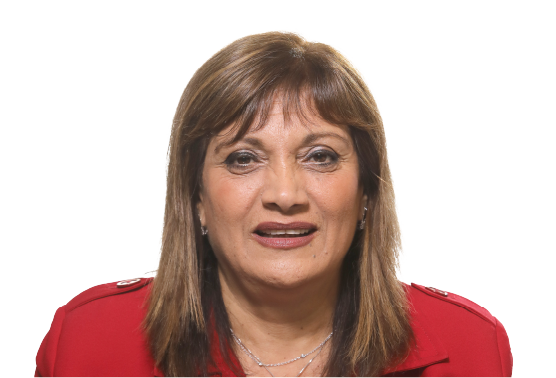CV
Orna Mizrahi, a senior researcher at the Institute for National Security Studies, joined INSS in December 2018, after a long career in the Israeli security establishment: 26 years in the IDF (ret. Lt. Col.) and 12 years in the National Security Council (NSC) in the Prime Minister's Office (she served under 8 heads of the NSC). In her last position (2015-2018) as Deputy National Security Adviser for Foreign Policy, she led strategic planning on regional and international policy on behalf of the NSC for the Prime Minister and the Israeli Cabinet, and was responsible for preparing the papers for the Prime Minister's meetings with leaders in the international arena. During her service in the IDF she served as an intelligence analyst in the Military Intelligence Research Division and as a senior officer in the Strategic Planning Division. She specialized mainly in research and strategic planning on regional issues, with an emphasis on the countries of the first circle and the Israeli-Palestinian conflict. Ms. Mizrahi holds an M.A. (cum laude) in History of the Middle East from Tel Aviv University and two B.A. degrees from Tel Aviv University: one in History of the Middle East and the other in General History and the Bible (summa cum laude). She is active in Forum Dvorah, which promotes the inclusion of women in the political-security establishment.

Orna Mizrahi
Senior Researcher
ornam@inss.org.il
03-6400471
Publications
All PublicationsA Year after the Ceasefire—Is Lebanon Truly Different?
What is the current state of affairs in the Land of the Cedars, one year after Hezbollah’s defeat in the intense campaign against Israel, and what risks and opportunities does this present for Jerusalem?
17 December, 2025Hezbollah 2.0—One Year After Nasrallah’s Elimination
A Year After Nasrallah’s Elimination: Where Does Hezbollah Stand, and What Are the Implications for Israel?
16 October, 2025Fracturing the Axis: Degrading and Disrupting Iran’s Proxy Network
This article examines the unprecedented transformation in the proxy network of the Ayatollah regime across various arenas, and analyzes its implications for Israel and the United States
11 September, 2025An Opportunity to Shape a New Reality with Lebanon
This policy paper proposes a strategy to translate the IDF’s achievements in the war against Hezbollah—along with the disintegration of the Shiite axis, the collapse of the Assad regime, and the consequences of the war between Israel and Iran—into a new security reality along the border with Lebanon, and to foster better relations with Lebanon’s new leadership.
The strategy combines ongoing military action to weaken Hezbollah and prevent its recovery with political and economic measures designed to diminish the organization while simultaneously strengthening Lebanon’s pro-Western leadership. This approach differs from the one recently presented to Lebanon by the US administration, as it considers the constraints of Lebanon’s weak leadership and the necessity of bolstering it in light of the challenge of disarming Hezbollah. It outlines a more realistic timetable and offers Israel greater flexibility, thereby increasing the chances of success—even if progress is slow and gradual—toward establishing a new security reality and improving bilateral relations.
8 September, 2025After the Israel–Iran War: Hezbollah’s Decline and Israel’s Opportunity
Hezbollah’s avoidance of attacking Israel during its war with Iran highlights the organization’s weakness. What are the challenges Hezbollah is facing—and how should Israel take advantage of the situation?
1 July, 2025Asymmetric Deterrence Between Israel and the Shiite Axis Led by Iran
2025-12-11 All magazine articles


